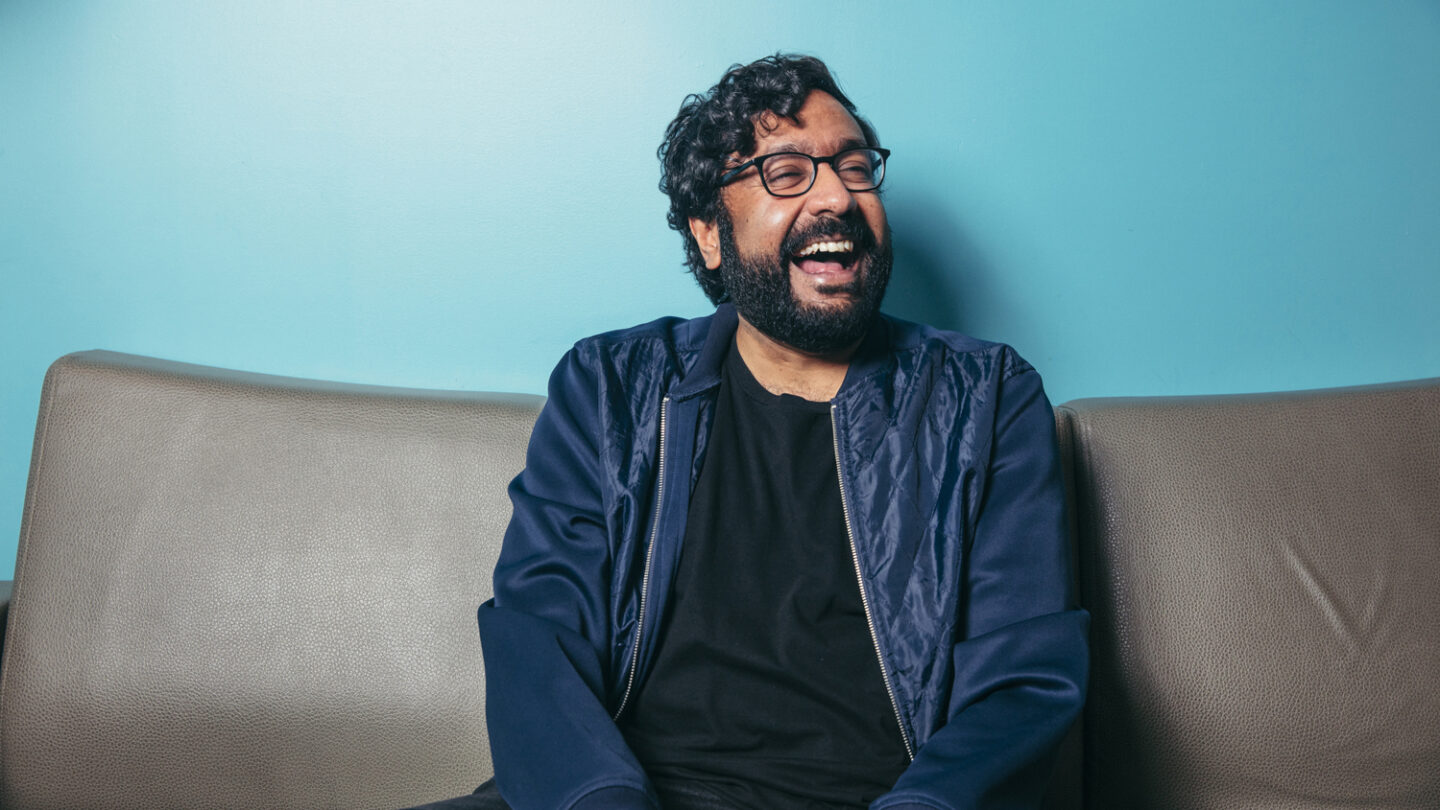You may know Hari Kondabolu from various creative roles – as a panelist on “Wait Wait… Don’t Tell Me!,” his standup specials on Netflix, or from his 2017 documentary, “The Problem with Apu,” which inspired a global conversation about race and representation in the entertainment industry. Kondabolu is performing in Atlanta again at Dad’s Garage on Wednesday, Nov. 16, and he joined “City Lights” host Lois Reitzes via Zoom before hitting the stage.
Interview highlights:
On his documentary “The Problem with Apu,” the problematic “Simpsons” character:
“Growing up, it was quite obvious, like, ‘Oh, this character is doing a crude impression of my parents,’ essentially. And when I was a kid I didn’t mind it, because we didn’t have anything else, and if you’re hungry, you take crumbs, right?” recalled Kondabolu. “When you start to realize, ‘Oh, this is all we have, is this one character,’ that definitely gets old after a while. I did a piece on my old friend W. Kamau Bell’s show ‘Totally Biased,’ where I first discussed the idea of Apu… I’m like, ‘Yeah, but people have talked about Apu being built on stereotypes for years, right?’ And I remember Kamau telling me, ‘No, your community has talked about that. That’s not something mainstream America thinks about,’ which was kind of eye-opening.”
“It became clear that there was more meat on the bone. So I made this documentary to talk about the history of this character and how it fits into this larger history of minstrelsy against marginalized people in this country. I’d start with the Black community, Blackface, things like that. And it kind of falls in line; a weird hazing period that marginalized people have to go through with their representation in this country before finally they get seen in some way, they get accepted into the mainstream,” said Kondabolu.
On crafting the elusive perfect stage bit:
“Sometimes you get super lucky, and you get lightning in a bottle, and you say something on stage, and the words come out, and they pour out, and it’s perfect… It’s a little bit of genius that somehow came out of your mouth,” Kondabolu said. “Most times, it’s a thought that leads to other thoughts, that leads to more writing, that leads to going on stage and repeatedly bombing until you figure out the right combination of ideas, the right combination of words, the right combination of sentences, until you have something that works on stage.”
“I don’t throw anything away. I have every notebook, pretty much, that I’ve written in since I was 17 years old. And every now and then, I’ll go through old books from a decade ago, and I find a thought that I wasn’t ready to really delve into at that age. It was like a thought, but I didn’t have enough life experience, and I’ll dig into it now, and I get somewhere that I wouldn’t have gotten otherwise. So, I mean, that’s the wonderful thing about comedy – is that it looks really fluid. But it’s actually, for most of us, a really painstaking process and a great deal of thought,” said Kondabolu.
White chocolate shouldn’t exist:
“It’s cocoa butter. It’s not even really chocolate. It’s cocoa butter extract, which I don’t make as part of the joke, but it’s another point to be made. But it’s the idea of people thinking, you know, ‘Do you love the taste of chocolate but can’t stand looking at it? Well then try some white chocolate…’ the punchline being, ‘From the people that brought you white Jesus,’ which has done well and has also not done well, depending on who’s in the room; I will share that much.”
A curious observation about live audiences post-COVID:
“[There haven’t] been that many presales of late, which I find kind of strange, and I get worried, like, ‘Have I lost it? Have people lost interest?’ And then I get to the show, and it’s packed, and apparently, people don’t buy their tickets until the last minute now because what if they get sick? What if something changes? What if I get sick?” said Kondabolu. “It’s kind of interesting to see that, as well as, you know, if there is any type of audience that would either wear a mask or be extra cautious at a show, it would be my crowd… For the comics who are anti-mask, anti-vaccine, their shows sell out immediately because nobody cares about anything; no one’s worried about the consequences. So it’s easy to buy that ticket. My fans being thoughtful, cautious human beings tends to work to my disadvantage in this particular scenario.”
Hari Kondabolu performs Nov. 16 at Dad’s Garage in Atlanta. Tickets and more information are available at https://www.dadsgarage.com/hari-kondabolu-dadsgarage










